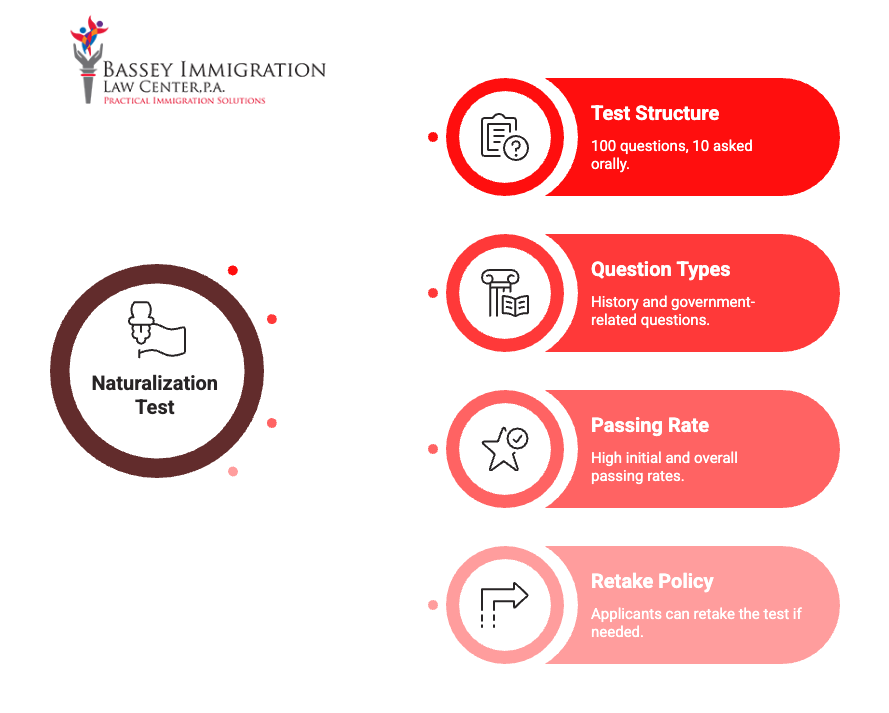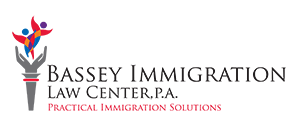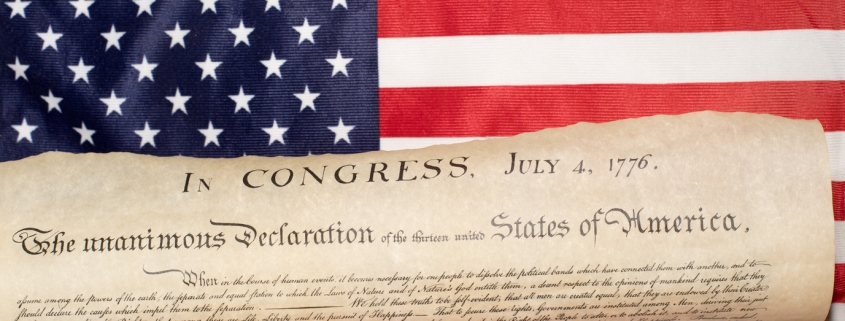Why is the Naturalization Test So Hard?
The naturalization test is challenging because it is designed to ensure that applicants demonstrate a thorough understanding of U.S. history, government, and civic principles, as well as proficiency in the English language. In addition, many applicants come from countries with different governmental systems, which can make it harder to grasp concepts like the U.S. Constitution, checks and balances, or federalism. Adapting to unfamiliar terms and ideas could also add to the difficulty.
At Bassey Immigration Law Center, we have over a decade of legal experience resolving a wide range of challenging immigration issues. Our multilingual team fully understands the immigrant experience and knows how to fight for your future successfully. If you have questions about the naturalization test, call today to schedule an affordable consultation.
The Naturalization Test

There are 100 possible questions in the naturalization test, although only ten questions are asked during your interview. To pass the test, you must correctly answer six of the ten questions. It is administered orally by the U.S. Citizenship and Immigration (USCIS) officer conducting your interview.
Approximately half of the questions on the civics portion of the test refer to U.S. history, and the other half relate to government functions. For instance, one history question asks, “Who wrote the Declaration of Independence?” The answer is Thomas Jefferson. “What is the supreme law of the land,” is a typical civics question. The correct answer is the U.S. Constitution. Remember that some questions include who is one of your state’s senators or who is your U.S. representative, so stay current on political affairs.
However, even though the naturalization test is difficult, 88 percent passed on their initial try, and 95.7 percent passed, counting those who opted for a second chance. The USCIS allows applicants to retake the test if they do not pass on their first attempt.
Studying for the Naturalization Test
The good news is that ample study materials are available. The USCIS provides a list of questions and answers, as well as study materials. Practice tests are also available online. Regularly studying and taking practice tests is the best way to prepare for the naturalization test and is critical to acing the exam.
Some organizations aid immigrants in test preparation. The USCIS funds local citizenship programs and English classes to improve your odds. Your attorney is another good source of advice regarding naturalization test study options.
If you are 65 or older and have been a lawful permanent resident for at least 20 years, you only have to study the 20 questions marked with an asterisk. These questions are more basic, such as “When do we celebrate Independence Day?” Unlike other applicants, they may take the test in their native or preferred language rather than English.
Contact a Florida Citizenship Lawyer
If you are a lawful permanent resident and want to pursue naturalization, an experienced citizenship lawyer at Bassey Immigration Law can help. We have two Florida offices: one in Tampa and one in Clearwater. Contact us to get your questions answered and set up an appointment. We look forward to discussing your goals and common-sense solutions.
About Bassey Immigration Law Center, P.A.
Bassey Immigration Law Center, P.A., led by attorney Aniefiok Bassey, provides comprehensive immigration services to individuals, families, and businesses in Florida and beyond. With over 20 years of experience, the firm assists clients with a wide range of immigration matters, from family reunification and green cards to business visas and deportation defense. The diverse, multilingual team is dedicated to supporting clients through the complex immigration process, with a special focus on citizenship, asylum, and LGBTQ+ immigration needs. They offer affordable initial consultations and are committed to delivering personalized, strategic guidance for achieving clients’ immigration goals.



